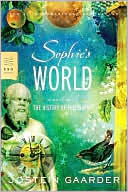Category Books
- Fiction Books & Literature
- Graphic Novels
- Horror
- Mystery & Crime
- Poetry
- Romance Books
- Science Fiction & Fantasy
- Thrillers
- Westerns
- Ages 0-2
- Ages 3-5
- Ages 6-8
- Ages 9-12
- Teens
- Children's Books
- African Americans
- Antiques & Collectibles
- Art, Architecture & Photography
- Bibles & Bible Studies
- Biography
- Business Books
- Christianity
- Computer Books & Technology Books
- Cookbooks, Food & Wine
- Crafts & Hobbies Books
- Education & Teaching
- Engineering
- Entertainment
- Foreign Languages
- Game Books
- Gay & Lesbian
- Health Books, Diet & Fitness Books
- History
- Home & Garden
- Humor Books
- Judaism & Judaica
- Law
- Medical Books
- New Age & Spirituality
- Nonfiction
- Parenting & Family
- Pets
- Philosophy
- Political Books & Current Events Books
- Psychology & Psychotherapy
- Reference
- Religion Books
- Science & Nature
- Self Improvement
- Sex & Relationships
- Social Sciences
- Sports & Adventure
- Study Guides & Test Prep
- Travel
- True Crime
- Weddings
- Women's Studies
Sophie's World: A Novel about the History of Philosophy » (First Edition)

Authors: Jostein Gaarder, Paulette Moller
ISBN-13: 9780374530716, ISBN-10: 0374530718
Format: Paperback
Publisher: Farrar, Straus and Giroux
Date Published: March 2007
Edition: First Edition
Author Biography: Jostein Gaarder
Jostein Gaarder was born in Oslo, Norway, in 1952. He taught high school philosophy for several years, before publishing a collection of short stories in 1986 and, shortly thereafter, his first two novels, The Solitaire Mystery and Sophie's World, and several others since then. He lives in Oslo with his family.
Book Synopsis
A classic page-turner that explores what it means to live in our modern world, available for the first time as an audiobook
Publishers Weekly
This long, dense novel, a bestseller in the author's native Norway, offers a summary history of philosophy embedded in a philosophical mystery disguised as a children's book-but only sophisticated young adults would be remotely interested. Sophie Amundsen is about to turn 15 when she receives a letter from one Alberto Knox, a philosopher who undertakes to educate her in his craft. Sections in which we read the text of Knox's lessons to Sophie about the pre-Socratics, Plato and St. Augustine alternate with those in which we find out about Sophie's life with her well-meaning mother. Soon, though, Sophie begins receiving other, stranger missives addressed to one Hilde Moller Knag from her absent father, Albert. As Alberto Knox's lessons approach this century, he and Sophie come to suspect that they are merely characters in a novel written by Albert for his daughter. Teacher and pupil hatch a plot to understand and possibly escape from their situation; and from there, matters get only weirder. Norwegian philosophy professor Gaarder's notion of making a history of philosophy accessible is a good one. Unfortunately, it's occasionally undermined by the dry language he uses to describe the works of various thinkers and by an idiosyncratic bias that gives one paragraph to Nietzsche but dozens to Sartre, breezing right by Wittgenstein and the most influential philosophy of this century, logical positivism. Many readers, regardless of their age, may be tempted to skip over the lessons, which aren't well integrated with the more interesting and unusual metafictional story line. Author tour. (Sept.)
Table of Contents
Subjects
 Fiction Subjects
Fiction Subjects  Character Types - Fiction
Character Types - FictionFiction Books & Literature
 Fiction Subjects
Fiction Subjects  Phases of Life - Fiction
Phases of Life - FictionFiction Books & Literature
 Teen Fiction
Teen Fiction  Teen Fiction - Girls & Young Women
Teen Fiction - Girls & Young WomenFiction Books & Literature
 Teen Fiction
Teen Fiction  Teen Fiction - Peoples & Cultures
Teen Fiction - Peoples & CulturesTeens
 Girls & Young Women
Girls & Young Women  Teen Fiction - Girls in Life
Teen Fiction - Girls in LifeTeens
 More Teen Fiction
More Teen Fiction  Teen Fiction - Girls & Young Women
Teen Fiction - Girls & Young WomenTeens
 More Teen Fiction
More Teen Fiction  Teen Fiction - Peoples & Cultures
Teen Fiction - Peoples & Cultures
